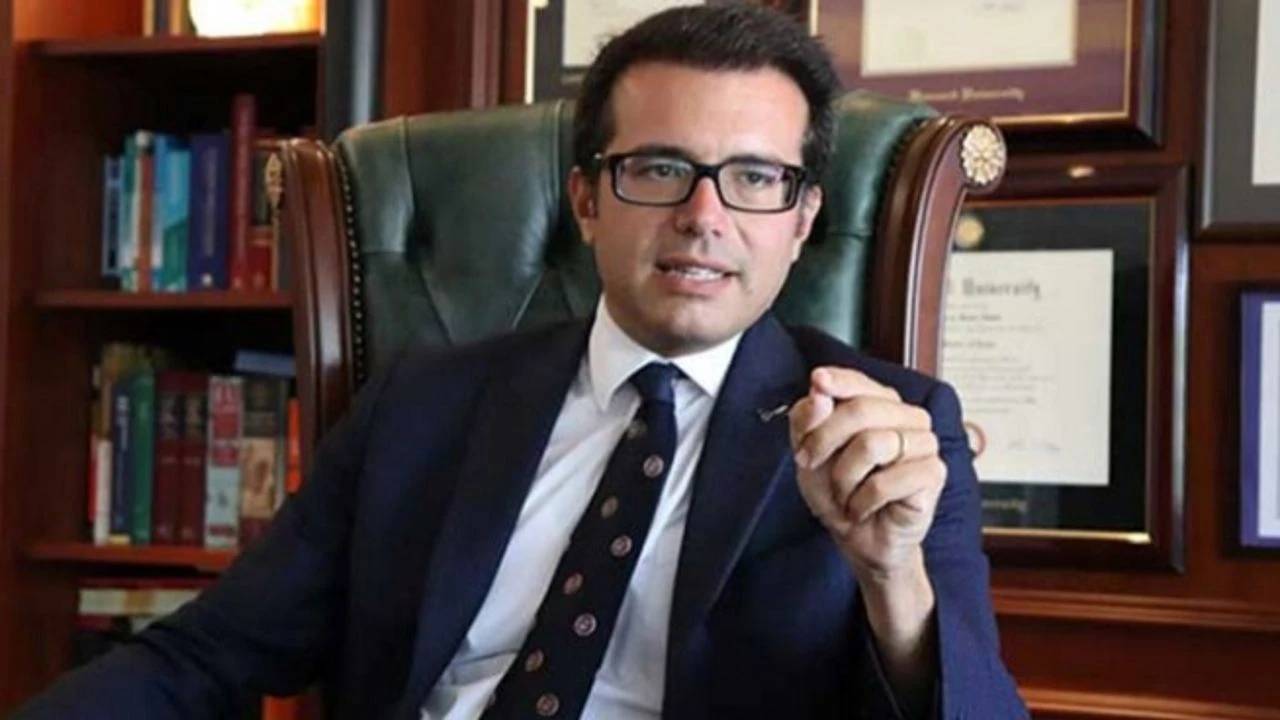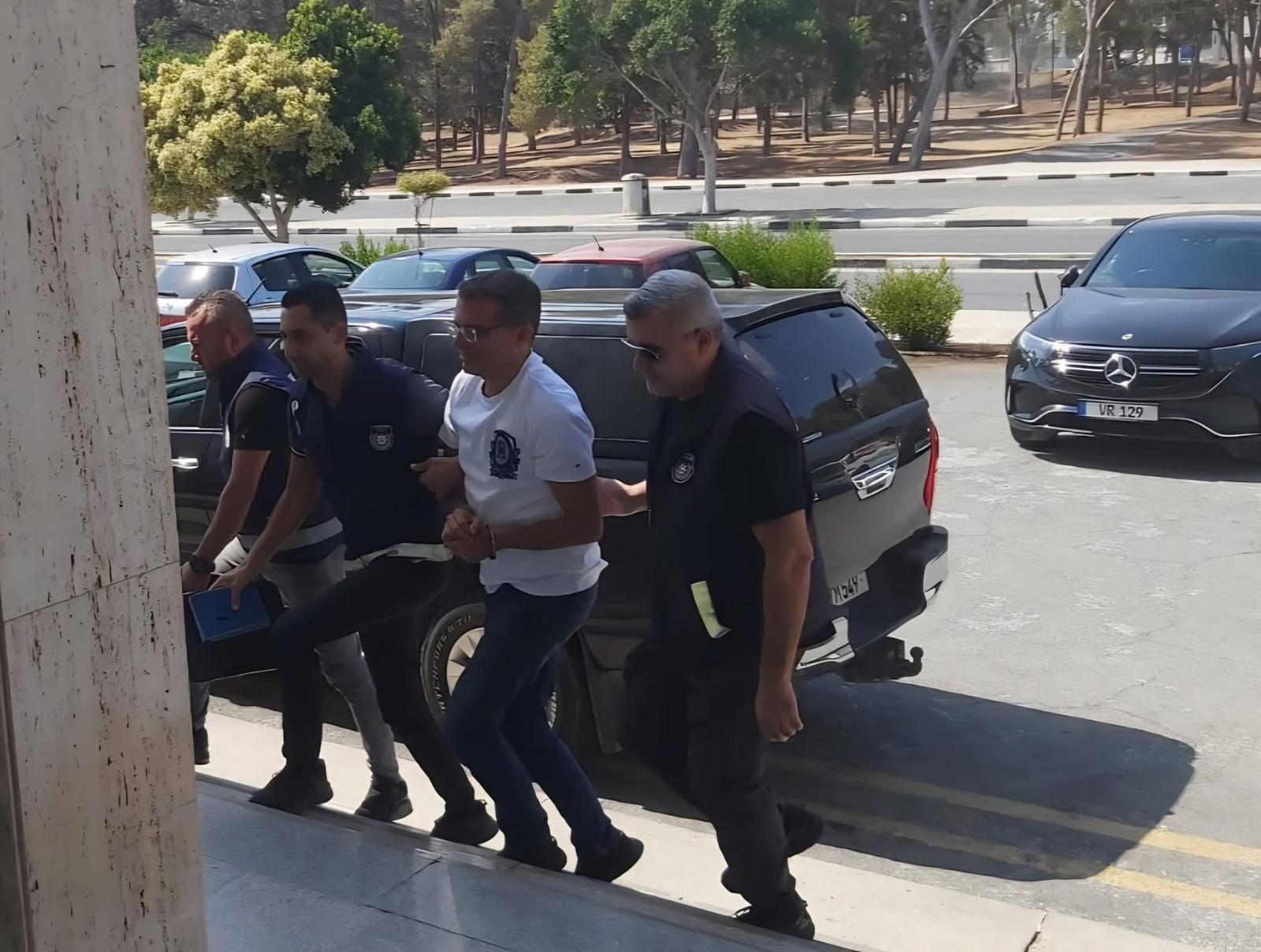Murat Metin Hakki, the lawyer of the five Greek Cypriots who were arrested in the north, was released on bail on Thursday after having been arrested himself on Wednesday.
He had been led into the Trikomo district court in handcuffs, and, like the five Greek Cypriots, was accused of “personal data violations” relating to handling and circulating information regarding immovable property in the Trikomo area
He spoke to reporters upon his release, thanking those who had expressed “concern” about his arrest, and commenting on both his own arrest and the arrest of his clients.
“The events of the last two months are quite unfortunate developments for both our country and the legal community. We will patiently and resolutely continue this process, monitor it, and hopefully, conclude it positively. In fact, I see many oddities in this case from a legal perspective,” he said.
He added that “accusations and charges have been levelled against me and other individuals, as well as my Greek Cypriot clients, who hold rights to immovable properties under investigation, regarding the violation of personal data”, and that in his own case, “I absolutely and unequivocally deny this”.
He said the concept of “personal data” in Turkish Cypriot law is “quite vague” as the current wording of the law “means it includes any information about any person”.
“So, for example, if someone were to publish a report today claiming that Murat’s hair had started turning grey, would that be a violation of my personal data? So, there are many contradictions in this law. These are important issues. When you look at the basic principles of sentencing, the definition of a crime needs to be very clear,” he said.
He then added that “I do not believe it is against any law for people to conduct research about a property to which they have rights under international law”, adding that he is “completely against “ the charges levelled against the five Greek Cypriots on this matter and that “such an interpretation of the law is out of the question”.
Additionally, he said there is “nothing clear in the law regarding land registry records”, which “explicitly prohibits” access to them.
“I believe that penalties cannot be imposed on matters not explicitly regulated,” he said.
He then moved onto the matter of the Immovable Property Commission (IPC), which was set up in the north in 2005 to handle claims for compensation, restitution of Greek Cypriot-owned property in the north and land exchanges, filed by Greek Cypriots who fled the north after 1974 and their descendants.
“A significant portion of property belongs to a client of mine, who is being held in prison. According to Greek Cypriot legislation and our legislation, as I mentioned earlier, he is the rightful owner … My client has submitted an application for the return of his properties, and the five properties subject to this complaint are most likely to return in any case,” he said.

With this in mind, he said, the arrest of the five Greek Cypriots made no sense.
“The funny thing is, we learned that the Turkish Republic of Northern Cyprus is among the complainants. In other words, the state has filed a complaint regarding properties it is obliged to return, which is a whole other factual and legal anomaly,” he said.
He stressed that the European Court of Human Rights (ECtHR) decision which declared the IPC to be an effective domestic remedy in 2010 was a “very good decision for us”, but warned that this may be in jeopardy after the arrest of the five Greek Cypriots in July.
“If the process that began regarding the Greek Cypriots here in Trikomo one day goes to the ECtHR, it is clear what the approach of any international court will be regarding anyone entering the property they claim without posing a physical danger to anyone or conducting research about their own property, and this will cause the pendulum to swing,” he said.
As such, he said, the Greek Cypriots’ arrest could cause the reversal of the ruling which declared the IPC to be an effective domestic remedy “to be reversed one day”, but said he had full confidence in the north’s courts to do the right thing.
“I have absolute confidence in the judiciary of the Turkish Republic of Northern Cyprus … The TRNC judiciary is a source of pride for this country. All the courts in Cyprus are Anglo-Saxon courts. We will not allow them to become Mussolini courts,” he said.
Returning to his own case, he said it is “absolutely unacceptable for a lawyer to be treated this way for a transaction involving their client” and that he “will not compromise on any point in protecting the interests of [his] Greek Cypriot clients in the north”.
Hakki had been arrested upon his arrival at the north’s Ercan (Tymbou) airport on Wednesday. He has been representing the Greek Cypriots in their case at the IPC.
The Greek Cypriots face two cases, one of which is being held regarding charges of privacy violations, trespassing, and breaching the peace, which is being heard at a civilian court in Trikomo.
That trial is set to continue on Friday.
Their other trial, wherein one of the five Greek Cypriots has been charged with illegally entering the north, while the other four stand accused of aiding and abetting the illegal entry, is being held at a military court in northern Nicosia.
On Wednesday, that trial was adjourned for a week due to the ill health of one of the five defendants.






Click here to change your cookie preferences